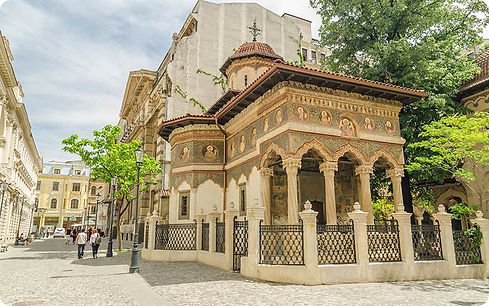
Bucharest D21 Cohort

Bucharest, the capital of Romania, experiences a major earthquake every 30-80 years, with the most recent in 1977. Through archival research and interviews with earthquake survivors and experts from Romania, Croatia, Albania, and the United States, this project aimed to explore correlations between social identity and earthquake preparedness in Bucharest. Our results indicate that Bucharest is extremely vulnerable in comparison to other countries. Interviews revealed limitations of Bucharest’s earthquake preparedness, specifically the government's lack of building assessment and citizens’ deep-rooted mistrust due to communist era policies. Despite these challenges to preparedness, NGOs have begun to make progress to improve citizens’ awareness and Bucharest’s disaster response efforts.
About our project
Our goal
The original goal of this project was to evaluate the earthquake vulnerability of specific religious and ethnic groups within the city of Bucharest to determine the extent to which preparedness varies across these different groups.
Our motivation
Bucharest will experience another major earthquake. There will be serious damage and loss of lives, but there has been no research into which groups will be the most affected. In order to be adequately prepared it is essential to identify and protect these groups.

